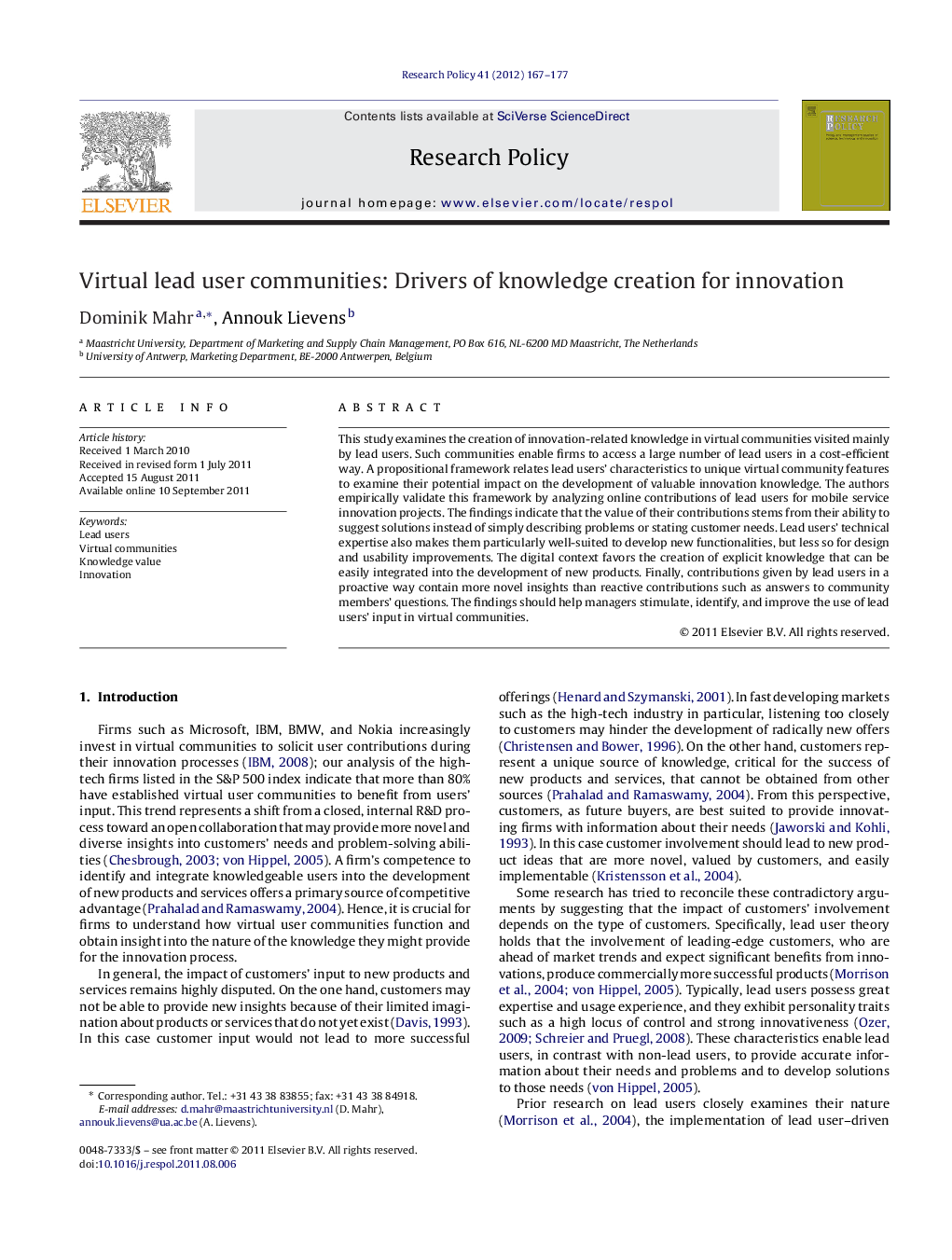| Article ID | Journal | Published Year | Pages | File Type |
|---|---|---|---|---|
| 985029 | Research Policy | 2012 | 11 Pages |
This study examines the creation of innovation-related knowledge in virtual communities visited mainly by lead users. Such communities enable firms to access a large number of lead users in a cost-efficient way. A propositional framework relates lead users’ characteristics to unique virtual community features to examine their potential impact on the development of valuable innovation knowledge. The authors empirically validate this framework by analyzing online contributions of lead users for mobile service innovation projects. The findings indicate that the value of their contributions stems from their ability to suggest solutions instead of simply describing problems or stating customer needs. Lead users’ technical expertise also makes them particularly well-suited to develop new functionalities, but less so for design and usability improvements. The digital context favors the creation of explicit knowledge that can be easily integrated into the development of new products. Finally, contributions given by lead users in a proactive way contain more novel insights than reactive contributions such as answers to community members’ questions. The findings should help managers stimulate, identify, and improve the use of lead users’ input in virtual communities.
► Virtual communities enable firms to access many lead users in a cost efficient way. ► We examine the impact of lead user and community features on knowledge creation. ► Lead users are most valuable for suggesting solutions for new functions. ► The digital context favors the creation of explicit knowledge.
